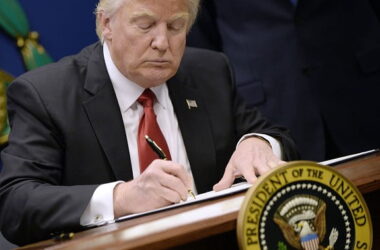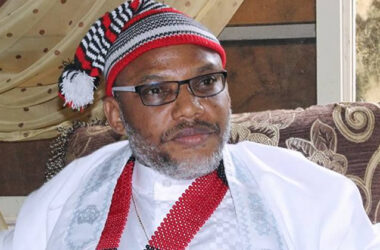Chijioke Edeoga, the 2023 governorship candidate of the Labour Party in Enugu State, has urged Governor Peter Mbah to review the current tax policies in the state. Edeoga raised concerns that the tax system is placing a significant burden on the residents and businesses, causing financial hardship.
In an open letter to the governor on Sunday, Edeoga highlighted several issues with the state’s tax regime, which he described as excessive. He emphasized that the multiple taxes imposed by the Mbah administration were forcing businesses out of the state and causing undue economic strain on the people.
The letter partly read: “You have increased tenement tax for bungalows in Enugu metropolis from N30,000 to N150,000 per annum. Tenement tax for high-rise buildings in high-density areas of Enugu metropolis increased from N50,000 to N300,000. Tenement tax for high-rise buildings in low-density areas of Enugu metropolis increased from N80,000 to N400,000. Land instrument/title registration increased from N70,000 to N300,000.
“Private school tax increased from N30,000 to N200,000 per annum. Trading shops of all kinds were forced to pay a new flat rate of N21,000 wherever they are located in the state, irrespective of the number of persons occupying them. This excludes charges for refuse disposal and management and other arbitrary charges. In timber sheds, Mr Mbah, a single poline attracts a tax of N100, in addition to the N21,000 the shop owners also pay.
“Daily taxes for all buses operating in the state increased from N200 to N2,000. Daily taxes for tricycles/keke increased from N100 to N450. Daily taxes for barrow pushers increased from N100 to N2,000. Small business premises tax soared to N25,000. Medium business premises tax skyrocketed to N56,000, while malls are required to pay N200,000.
“In Enugu, we have a purchase tax that ranges from N5,000 to N15,000 depending on location. This has been imposed on groceries and all factory products, from which VAT has already been collected, meaning there is double taxation, assuming that all other taxes listed are morally justifiable. We recently encountered what you call a carbon emission/generator tax for hotels, ranging from N88,000 for small hotels to N200,000 for large hotels. This is occurring when the government has failed to provide stable electricity and even when public power is available, the people still battle with crippling estimated billings because the power company has not democratized the installation of prepaid electricity metering systems.”
Referring to the tax principles laid down by renowned economist Adam Smith, Edeoga contended that good taxation must adhere to the principles of fairness, certainty, convenience, and efficiency.
He said, “Fairness, he wrote, means that taxation should be compatible with taxpayers’ conditions, including their ability to pay in line with personal and family needs. Certainty, he further advised, should mean that taxpayers are clearly informed about why and how taxes are levied.
“In terms of convenience, Smith talked about the ease of compliance for taxpayers, that is, how simple the process for collecting or paying taxes should be, while efficiency, the final leg of the quadruped, stated that the administration of tax collection should not negatively affect the allocation and use of resources in the economy.”
While alleging that Governor Mbah might be employing excessive taxes as revenge against the people for allegedly not voting for him in the last elections, Edeoga also compared the tax regime of Mbah’s administration to what triggered the Aba Women’s Riot of 1929.
“Enugu people had hoped for a breath of fresh air in the run-up to the 2023 elections, but they were betrayed by elements that elevated you to office against the will expressed through the ballot. And rather than have mercy on the people, you have confronted them with the horsewhips of vengeance,” Edeoga said.
Continuing, the Labour Party chieftain stated: “As it stands today, the people of Enugu State are being taxed without their input and with no regard to their capacity. Their cries bring to mind the agony of taxation without representation. In 1929, Igbo women rose against the colonial government in the historic Aba Women’s Riot to protest taxation without representation; a hundred years later, and under an administration led by our own citizens, we are faced with the same challenge. Those who fail to learn from the lessons of history are doomed to repeat it,” he said.










